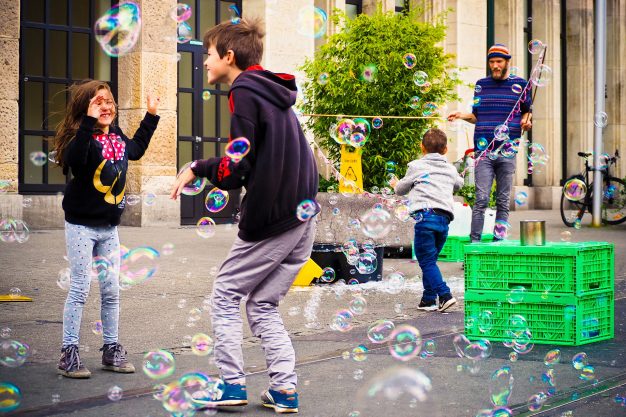
How city leaders can support babies, toddlers and their carers
The Bernard van Leer Foundation, which campaigns to help children in urban settings worldwide, has developed a set of ideas for how city leaders can help youngsters post-corona.
Babies, toddlers and the people who care for them are among the most vulnerable in society being hit the hardest by the knock-on effects of the COVID-19 lockdowns across the globe.
‘Invest in childcare’
But, says BvLF, ideas are emerging to support them, both now and in the long-term. It offers three briefs outlining actions which can be taken by finance ministries; health and social services & parenting programmes; and for cities and local government organisations.
Focusing specifically on cities, the foundation says that ‘the science tells us’ that the first few years of life are foundational for lifelong health, learning and happiness. Yet in many cities, existing inequalities make it much harder for some babies and toddlers than others to ‘get the play, love, food or healthcare they need’.
The current pandemic, it adds, has ‘amplified many of these inequalities’. “Urban life has been turned upside down, putting great stress on families and reducing their access to services and support systems,” it adds. Key issues include access to essential services like pre and post-natal childcare, loss of income and access to public space and nature.
‘Access to public space and nature’
“The most vulnerable families are typically the worst affected, including families living in heavily polluted urban areas, those in informal settlements, migrant families such as asylum seekers and refugees, homeless families, women and children at risk of domestic violence, and those facing existing discrimination related to race, gender, sexual orientation, ability, or age,” adds the foundation.
It has come up with 10 recommendations for how leaders can support, babies, toddlers and carers through the current pandemic and into the future:
- Adapt and continue to provide early years health, nutrition, social protection and childcare services.
- Adapt and continue to provide parenting programmes — remotely, if necessary.
- Boost mental health services for people caring for young children.
- Invest in preventing and addressing domestic violence.
- Support families and households with young children with time and money (i.e. through paid care leave, flexible working and direct cash transfers).
- Ensure that emergency provision of essential urban services, such as sanitation, transit and public space, is directed to families with babies and toddlers.
- Ensure that economic recovery responses benefit — and don’t harm — families with young children.
- Invest in childcare as a sector: the backbone of the economy in every way.
- Make use of the wealth of new data being generated by the crisis and invest in data systems to better target vulnerable families with young children in future pandemics and disasters.
- And finally, for the advocates out there: let’s take this opportunity to join forces to advocate for two things that must be part of a post-Covid society where all babies can thrive to their full potential…universal paid childcare and shared streets for all.
Click here for a list of the individuals and organisations with whom the foundation has worked with on this initiative.




